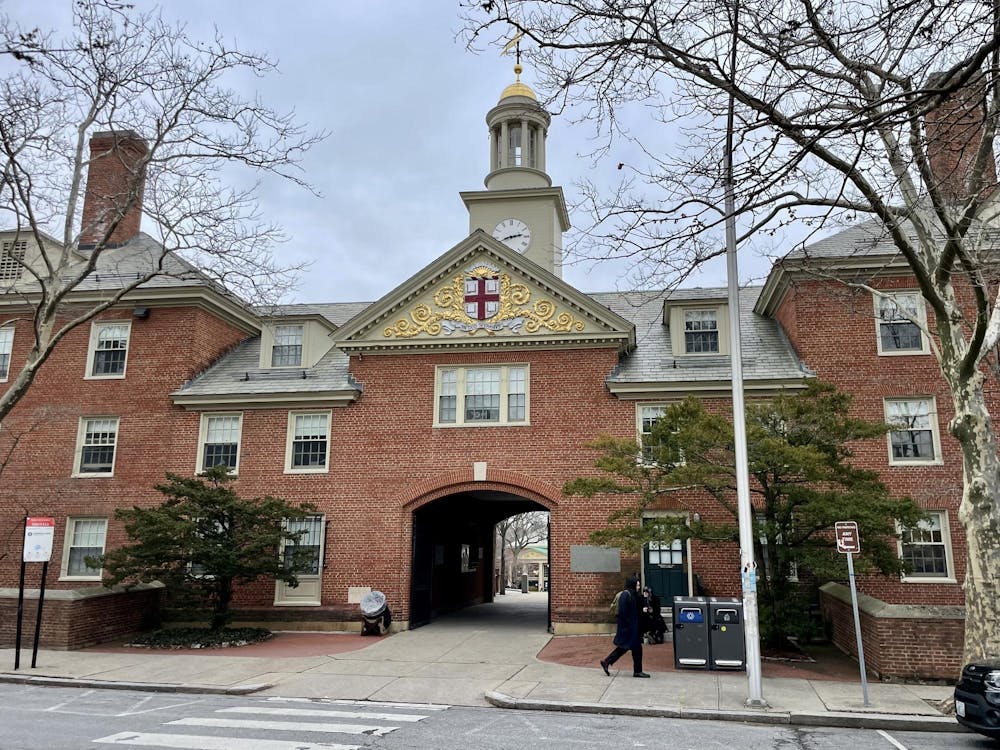The Labor Organization of Community Coordinators voted to authorize a strike beginning on first-year move-in day Wednesday, according to a statement released by the union Monday. The University and LOCC have spent more than six months negotiating over the union’s first contract.
The strike comes as a response to allegations of “surface bargaining” — a strategy in which negotiators bargain without the intention of reaching an agreement — and “unilateral changes” to CCs’ working conditions, according to LOCC Organizer Anna Ryu ’25. LOCC filed a formal unfair labor practice complaint against the University with the National Labor Relations Board on August 26.
“During our training week, we have seen conversations that we’ve had in bargaining throughout the summer and earlier misrepresented through unilateral changes to working conditions,” Ryu said. “It’s been frustrating … and ultimately got to a point where we realized that admin wasn’t taking us seriously and hasn’t been taking us seriously because they haven’t felt the need to.”
In an email to The Herald, University spokesperson Brian Clark wrote that the negotiations were a “collegial and good-faith effort on both sides” and led to “significant progress on many fronts.”
“Brown agreed to multiple union proposals and moved significantly in its positions on many articles based on feedback from students,” Clark wrote. “As just a few examples, we agreed that community coordinators would benefit from more standard and transparent job responsibilities, accountability processes, and earlier confirmation of training dates.”
LOCC, which represents more than 140 student residential assistants and community leaders employed under the Office of Residential Life, formed in September 2023 and received formal recognition from the University in October. At least three-quarters of the union’s membership voted in favor of a strike, according to Ryu.
In a list of strike demands published on the union’s website, the union called for compensation increases, “fair and transparent rehire process that prioritizes worker retention across academic years” and a continuation of “current policies that allow CCs to be involved in other campus activities like athletics and teaching,” according to Monday’s statement.
In statements to The Herald, both University and union representatives characterized compensation as the largest roadblock to reaching a contract.
The union proposed an annual stipend of $17,444, which is equal to the cost of food and housing for the current academic year and which the union says is comparable to what residential assistants receive at other institutions. But Clark said this comparison does not account for key differences in the nature of the roles.
The CC “role is distinct from resident assistant roles at many schools, particularly in that community coordinators are not responsible for enforcing community standards,” Clark wrote.
“At Brown, community coordinators lead community-focused programming, while Brown’s professional area coordinators are responsible for response to policy violations, individual student support, crisis intervention, serving as staff on-call, helping with lockouts and addressing facilities concerns,” he added.
The University countered LOCC’s $17,444 demand with a one-year "interim" proposal to pay CCs $12,000 annually, 15% more than the current stipend rate. The interim agreement would have “enabled the union to collect dues and implement all elements of the contract successfully agreed upon, while providing additional time to bargain on compensation for future years,” according to Clark, who noted that the union’s offer would constitute a 66% compensation increase, “far exceeding increases for other employee groups at the University.”
LOCC did not accept the University’s proposal.
Community Coordinators who participate in the strike “will not receive paychecks for time away from their roles,” Clark said. The union announced via Instagram on Tuesday that it is raising money for a strike solidarity fund to compensate for lost wages and “other strike support.”
The strike’s start date is set to coincide with first-year move-in on Wednesday.
“It wasn’t an easy decision, especially for our first-year area CCs, who look forward to greeting their residents and supporting them,” Ryu said. But “we felt that it was necessary to choose such a critical day to go on strike. They haven’t met us meaningfully on so many of our proposals after so many of our discussions.”
As contract negotiations stalled, Ryu said that community coordinators ultimately decided to strike after being notified of changes to their role and expectations during the training week.
CCs who work as computer science teaching assistants or are student athletes have historically cooperated with ResLife to navigate conflicts that prohibit full attendance at CC training sessions, according to Ryu. This year, Ryu said that some CCs have been terminated for failing to attend the entire training despite communicating with their ResLife supervisors.
The University did not directly address the union’s claims about the terminations.
After the strike was announced Monday, the CCs were notified of more policy changes that were “never discussed with us as CCs or as a union,” Ryu said.
Elijah Dahunsi ’25, a member of LOCC, pointed to two changes that “almost seem counterintuitive to the goals of ResLife,” he said: the addition of “engagement hours” to CC responsibilities and an adjustment to how CCs receive credit for joint programing.
In the past, CCs had been able to work together to complete mandatory programs for residents each semester, allowing groups of CCs to share funds and receive credit for the event, Dahunsi said. But now, no more than one CC can receive credit for a single event, and stipulations around engagement hours have limited “the autonomy we have in choosing what way we like to see fit to engage student interest in certain programs.”
“Brown respects the rights of its union employees to engage in labor actions,” Clark wrote, noting that the University still intends to “fulfill its commitment that all undergraduate students benefit from a dynamic residential learning environment as part of their Brown education.”
Some members, like Dahunsi, aren’t convinced that a strike will help.
“I’m hesitant to participate,” he said. “I’m not sure whether the benefits of the strike will actually turn out as they are being touted to be.” If ResLife has been negotiating in bad faith, he added, “I don't really see how the strike might change that demeanor in regards to the negotiations.”
In a Tuesday morning Instagram post, the union responded to an image of an email from ResLife asking members of “campus life” to volunteer for move-in in exchange for food and a t-shirt.
“The University will reallocate staff, volunteers and other resources to ensure continuity in operations as we welcome our new students,” Clark said.
The strike has no definitive end date. But Ryu said members can collectively vote to end the strike “at any time,” and the union’s leaders plan to maintain continuous contact with members.
“While new students and families may see evidence of student activism on campus at times, we expect a smooth move-in experience and a warm and successful welcome to Brown’s newest undergraduates,” Clark wrote. “Brown’s team of professional Area Coordinators, who live in the residence halls, will provide a known and visible presence for new students in the residence halls.”
This story has been updated to clarify details about the University's offer for a $12,000 stipend.

Ethan Schenker is a university news editor covering staff and student labor. He is from Bethesda, MD, and plans to study International and Public Affairs and Economics. In his free time, he enjoys playing piano and clicking on New York Times notifications.

Katie Jain is a University News editor from New Jersey overseeing the graduate student life beat. She is a senior concentrating in International and Public Affairs and History.





